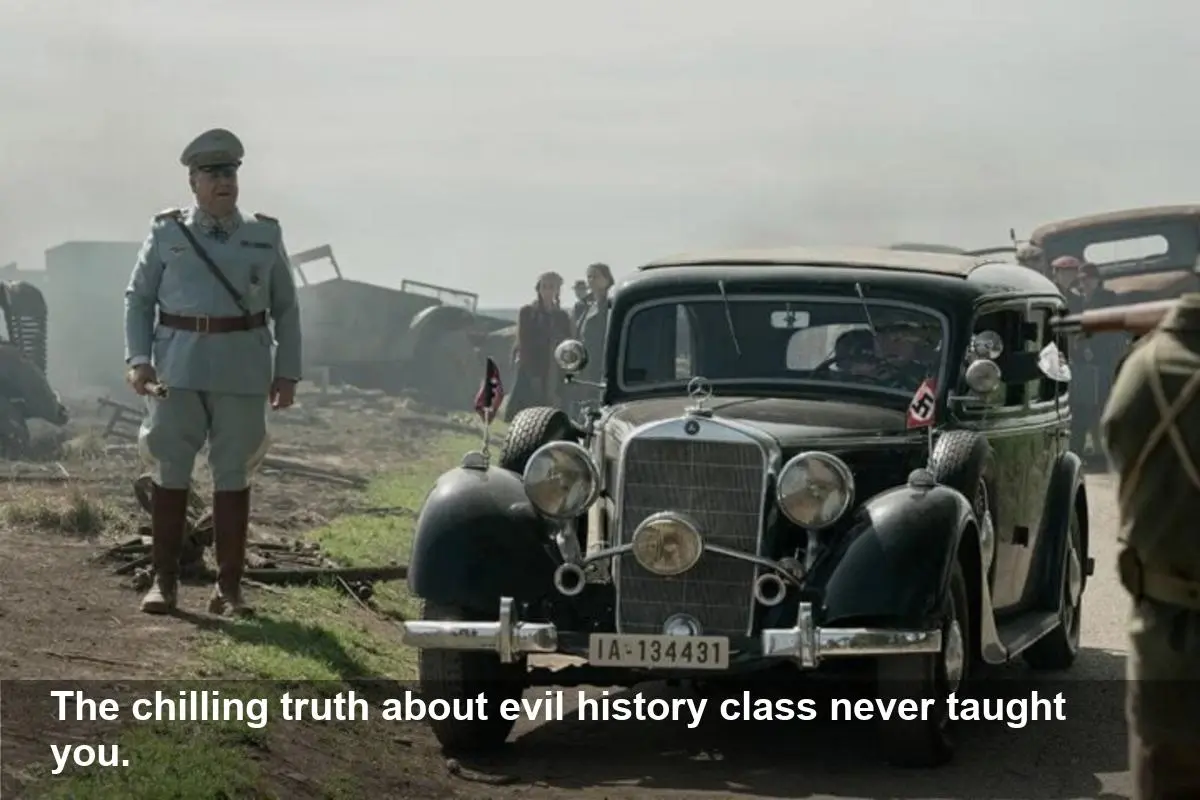- James Vanderbilt’s new film, ‘Nuremberg,’ stars Russell Crowe as high-ranking Nazi Hermann Göring and Rami Malek as the American psychiatrist assigned to evaluate him.
- The historical drama delves into the psychology of evil, questioning how seemingly civilized people can commit monstrous acts.
- Critics are calling the film a timely and chilling mirror to our own era, warning against the dangers of rising authoritarianism.
- Based on the 2013 book The Nazi and the Psychiatrist, the film explores the complex and unsettling relationship between the two leads in the build-up to the historic Nuremberg trials.
A Haunting Reflection of Our Times
James Vanderbilt’s latest film, ‘Nuremberg,’ is more than just a historical drama; it’s a direct and unsettling conversation with our present moment. Set in the immediate aftermath of World War II, the film follows U.S. Army psychiatrist Douglas Kelley (Rami Malek), who is tasked with a monumental goal: to understand the nature of evil by interviewing the highest-ranking Nazi officials awaiting trial. His primary subject is Hermann Göring (Russell Crowe), Hitler’s charismatic and manipulative second-in-command.
The Seduction of Evil
The film, distributed by Sony Pictures Classics, centers on the tense psychological battle between Kelley and Göring. As Kelley delves deeper, he becomes obsessed with his subject, hoping to find a clear line that separates men like Göring from the rest of humanity. He plans to write a book that will dissect the Nazi mind, aiming to answer the terrifying question: “What makes the Germans different from us?”
However, Crowe’s portrayal of Göring shatters any easy answers. He is not a one-dimensional, mustache-twirling villain but a slippery, soft-spoken, and seductive figure. This smart casting choice leverages our familiarity with Crowe to present a more disturbing truth—that monsters are often all too human. This humanization forces the audience to confront the film’s central thesis: atrocities are not committed by monsters, but by fallible people susceptible to the influence of bad actors.
A Warning for Today
Just as Stanley Kramer’s 1961 classic Judgement at Nuremberg spoke to the anxieties of the Cold War, Vanderbilt’s film holds a mirror to the 21st century’s political landscape. The narrative powerfully suggests that the descent into a moral abyss is not a sudden fall but a series of thousands of small, individual, and collective decisions. It serves as a stark reminder of how easily societies can tumble down the rabbit hole of authoritarianism when they fail to recognize the warning signs.
The film challenges the comforting belief that history cannot repeat itself. Through its grim and thoughtful exploration of the past, ‘Nuremberg’ leaves audiences with a profound and unsettling conclusion. The famous vow “Never again,” it seems to argue, was never a promise. It has always been a desperate plea.
Image Referance: https://www.slantmagazine.com/film/nuremberg-review-russell-crowe-rami-malek/
